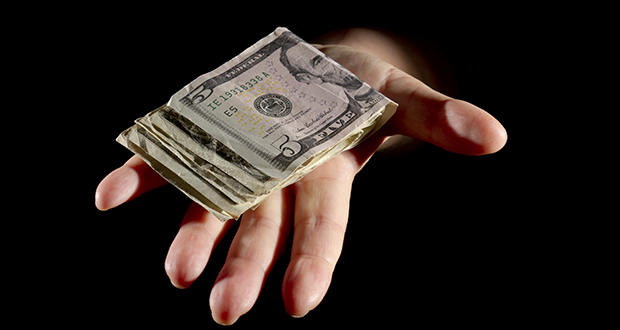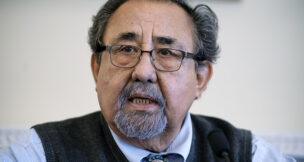Grassroots school group to tackle ‘dark money’ measure
Howard Fischer, Capitol Media Services//May 8, 2018//
Grassroots school group to tackle ‘dark money’ measure
Howard Fischer, Capitol Media Services//May 8, 2018//
The group responsible for forcing a public vote on the future of vouchers will now help a bit to block “dark money” in future political campaigns.
But it won’t be backing a plan to hike taxes on the rich to help fund schools.
Dawn Penich-Thacker, spokeswoman for Save Our Schools, acknowledged that an initiative filed last week for an income tax surcharge is designed to raise about $690 million a year for K-12 education. And she said a dedicated source of dollars is needed to ensure that there are sufficient dollars to support schools in case of a future recession.
She said, though, that raising taxes on only those in the top 2.5 percent of income appears more divisive — and more partisan — than her organization likes. Anyway, she told Capitol Media Services, her group has its own battle to fight in convincing people to vote in November to kill voucher expansion.
But Penich-Thacker said the “Stop Dirty Money” campaign is different. She said the movement to use taxpayers dollars to send children to private and parochial schools is financed to a great extent by organizations whose donors are shielded from public view by state laws.
And there’s something else: It was a “dark money” group, Americans for Prosperity, that filed suit last year to kill the Save Our Schools referendum which seeks to give voters the last word on 2017 legislation expanding the voucher program to allow any parent to get state dollars to send a child to private or parochial schools.
The legal challenge failed and the measure will be on the ballot as Proposition 305. But Penich-Thacker said fighting that lawsuit to preserve the referendum “burned up every bit of donations we had been getting in.”
So she’s ready to help remove the legal veil over the donors.
“That dark money is where our problem arose,” Penich-Thacker said, saying there’s a “natural connection” between Save Our Schools and the initiative.
That backing — and the volunteers that Save Our Schools can generate — could provide the push to get the measure on the ballot.
The proposal being pushed by former attorneys general Terry Goddard, Tom Horne and Grant Woods, the first a Democrat and the other two Republicans, would put a “right to know” provision in the Arizona Constitution, requiring public disclosure of the names of anyone who puts at least $10,000 into any campaign, whether for public office or a ballot measure.
That’s already required now.
But there’s an exception: Groups organized under the Internal Revenue Code as “social welfare” organizations can refuse to disclose their donors, leaving voters with a name — like Americans for Prosperity.
What Save Our Schools provides is motivated bodies. Its volunteer organizers were able to gather more than 110,000 signatures in less than 90 days last year to put the referendum on the ballot.
The initiative to ban dark money could benefit from volunteers. It faces a stiffer hurdle, needing more than 225,000 valid signatures on petitions by July 5 to put it on the November ballot.
That issue of “dark money” has become an increasing problem for voters interested in finding out who is behind commercial, mailers and other campaign materials.
In the 2014 gubernatorial race, for example, the $5 million spent on the general election directly by Ducey and Democrat Fred DuVal was eclipsed by the $9 million others spent trying to influence the race. Most of that cash flowed in Ducey’s benefit.
The Republican-controlled Legislature has shown little interest in providing more information on donors.
In fact, lawmakers earlier this year approved a measure blocking cities from enacting their own financial disclosure laws. That most immediately voided an ordinance approved by 91 percent of Tempe voters.
If the initiative is approved it would not just force disclosure in statewide and legislative races but again empower cities and towns to enact their own similar requirements.



















